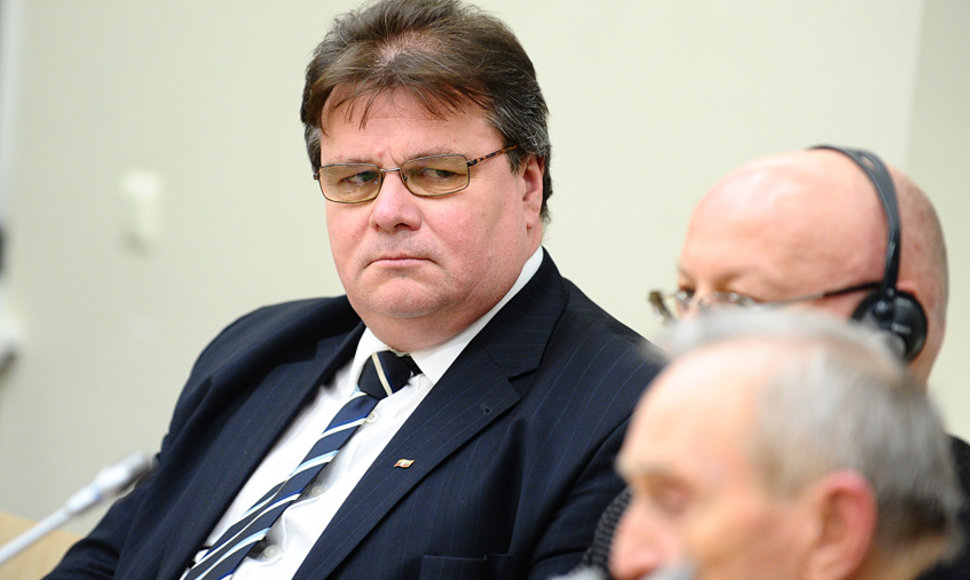"In our conversations with Ukrainians, we emphasize the need to clear any doubts about existence of selective or politicized justice in Ukraine. Many countries deem the case of (Ukraine's jailed ex-PM) Yulia Tymoshenko a symbol of the rule of law – it either exists, or it doesn't," the minister said in a telephone interview to BNS from the Ukrainian capital.
He spoke in response to an idea expressed by Benediktas Juodka, chairman of the Lithuanian parliamentary Foreign Affairs Committee, during a meeting with a delegation of the European Parliament (EP) in Vilnius that one person cannot decide the future of an entire country.
"Without a doubt, one person or one issue cannot determine the strategic development of a country. As I have said, many countries see the Tymoshenko case as a test paper indicating whether the country is on the right track. We have to accept it as a fact," Linkevičius said.
During his stay in Kiev, he also worked to establish the meaning of the memorandum signed by Ukraine on Friday on closer cooperation with the Customs Union being established by Russia.
"We inquired about the meaning of this document. We were assured that it is not a legally binding document, allegedly it makes no obstacles for integration with the European Union. We have to study and examine it," Linkevičius said.
He emphasized that Ukraine was repeatedly advised that any type of integration with the Customs Union would bar it from signing the Free Trade Agreement with the EU.
Linkevičius told BNS that he met with Ukraine's ruling politicians and opposition figures in Kiev and spoke about the homework Ukraine has to complete to be able to sign the Association Agreement with the EU during the Eastern Partnership summit in Vilnius in the end of November.
In his words, the election system and reforms of the legal system are the key areas.
Linkevičius said a decision in connection to Ukraine's fitness to sign the Association Agreement will be made in October or even November.
The Eastern Partnership summit will take place in Vilnius on November 28-29 in the framework of Lithuania's EU Council presidency.












